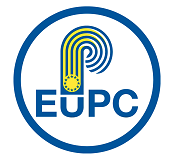2018
Single Use Plastics
On May 30, the European Commission presented a draft directive restricting the use of certain disposable plastic products. The Commission has focused on plastic waste, which is most often found on EU beaches. Interesting, if littering behavioue cause (if the restrictions come to fruition) other waste on the beaches, changing only the structure, or the people will suddenly change into environmentally responsible. It seems, however, that consumers and their behavior remain the key to a clean environment. The Commission is also proposing legislative changes on plastic fishing gear, which account for 27% of the waste deposited on the beaches. In addition, EC proposes changes in the legislation, which in its current form do not encourage the service of ships to return the waste in the port, and in the case of an attempt to deliver waste encountered in the water areas, charges additional fees. Polish Union of Plastics Converters supports EU actions leading to the reduction of littering and increase of recycling levels on the way to the Circular Economy. However, PUPC has doubts regarding the coherence of the proposal with the EC's communication and the announced Strategy for Plastics, considered as a basic act for further activities in this field. On the way to CE, instead of focusing on restrictions in relation to "media" plastic products, which are undoubtedly single use items, the EC should make every effort today to implement a uniform system of attesting products placed on the market in terms of their "reversibility" in an economic closed loop - eg a product safety card should contain detailed information on the method of recycling and the entity responsible for this process. In general, restrictions on the use of specific products will not result in sustainable consumption, and may affect the emergence of waste with a much larger environmental footprint. In contrast, the activities included in the Strategy for Plastics are in line with the idea of sustainable consumption and production. Only about 1% of plastic waste that goes to the oceans comes from the European Union, therefore international actions to protect against water pollution should be an absolute priority of the EU and could be more effective than prescriptive schemes of restrictions together with excessively extended producer responsibility, which in effect they can significantly weaken the competitive position of EU entrepreneurs.


